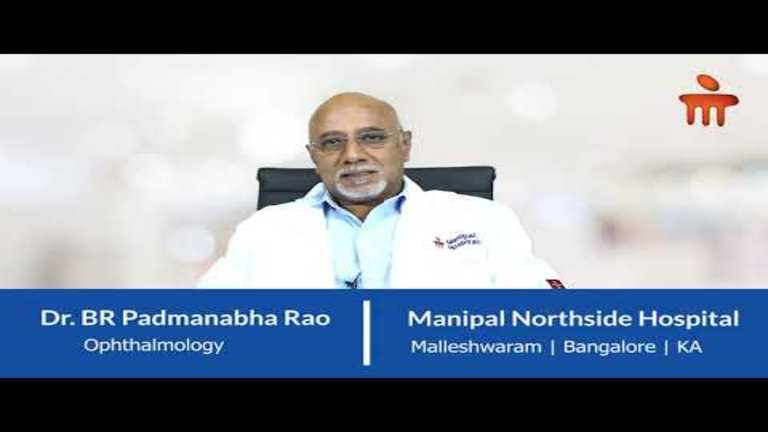
Protect Your Vision: Tips For Preventing Eye Injuries In The Workplace

Department of Ophthalmology

3 Min Read
Mar 18, 2024

Book Appointments &Health Checkup Packages

Book Appointments &Health Checkup Packages





As one of the most specialized ocular health practices in India, the Department of Ophthalmology at Manipal Hospitals provides patients with access to expert diagnostics and care that includes interventional procedures and surgery.

Manipal Hospitals' team of skilled Doctors are responsible for the successful diagnosis and treatment of several thousands of patients. The multi-disciplinary team at the Department of Ophthalmology ensures that patients have access to a wide spectrum of solutions and the right advice to enable them to make the best decisions. The team works with specialists across disciplines to ensure procedures are conducted safely and effectively
Commonly found in older people, a cataract is a clouding of the lens of the eye that can cause blurry vision, faded colour and night blindness. Cataract surgery is a procedure done to remove the clouding and restore vision to normalcy. It is a fairly common procedure and is done with little to no complication in a majority of cases.

Globally, over 2 billion have impaired vision or some kind of blindness, out of which at least 1 billion cases could have been prevented with medical intervention. The major causes of impaired vision across the globe are refractive errors and cataracts which have been left untreated. Most vision impairment cases are among people who are above 50 years of age.
Manipal Hospitals' ophthalmologists and cardiovascular surgeons believe in the value of accurate diagnosis in achieving effective treatment for various eye disorders such as cataracts, eye injury, conjunctivitis, eye infections, burning eyes etc. The team is equipped with a wide range of diagnostic tools and tests with which to identify ocular disorders. The procedural treatments performed by our team of ophthalmological surgeons are designed to be minimally invasive and as safe as possible.
Some of the diagnostic facilities Color vision test (Farnworth-Munsell 100 (FM-100) hue test) Visual field tests Computerized Optic Disc Imaging & Nerve Fiber Layer Analysis (GDX, HRT, OCT) - Electro-diagnostic testing - Corneal topography mapping - Ocular Coherence Tomography (OCT) - Fluorescein angiography - Specular microscopy - Ocular ultrasound Surgical procedures performed - Cataract removal - Glaucoma surgery - Presbyopia reversal - Keratomileusis - Conductive keratoplasty - Radial keratotomy - Hexagonal keratotomy - LASEK (Laser assisted subepithelial keratomileusis) - LASIK (Laser-assisted in situ keratomileusis) - Laser thermal keratoplasty - Photorefractive keratectomy - Automated lamellar keratoplasty - Epikeratophakia - Contact lens implants - Anterior ciliary sclerotomy - Scleral reinforcement surgery (to slow down degenerative myopia)
The ophthalmologist performs a routine inspection to judge the current state of your vision. After a series of tests, your vision score is determined and if there are any ocular disorders, they are diagnosed and the impairment is measured. Minor impairment is usually corrected with spectacles and contact lenses but in some cases, the ophthalmologist may prescribe medication or a procedure.
● Age (older people are more likely to have impaired vision) ● Genetic predisposition (family history of color blindness, night blindness and other. disorders) ● Poor nutrition ● Excess UV exposure ● Diabetes
● Blurry/hazy vision ● Recurring eye pain ● Rainbows or halos appearing around lights ● Difficulty seeing near or far ● Difficulty in color recognition ● Sensitivity to light ● Severe itching
In most cases, eye disease affects older people and those with a hereditary risk of eye disease. In those cases, it is difficult to prevent eye disease. Aside from these factors, maintaining a good diet and protecting your eyes from harm (UV rays, accidents, etc.) can prevent a lot of eye problems.
Yes, a yearly eye checkup helps you keep track of the health of your eyes and also allows your doctor to detect any problems that are developing in your vision.
Manipal Hospitals is committed to offering quality, personalized care to its over a long-term relationship that is beneficial to its patients. The advanced technology and expert staff in the Ophthalmology department are a testament to this.
Reach out to us to learn more about maintaining healthy vision and book an appointment with one of our ophthalmology specialists today.

I would advise all diabetic patients to have their eyes examined once in a year, says Dr. BR Padmanabha Rao, Ophthalmologist, Manipal Hospitals, Malleshwaram. Watch here to know more. Best Hospital in…
Home Specialities Ophthalmology
